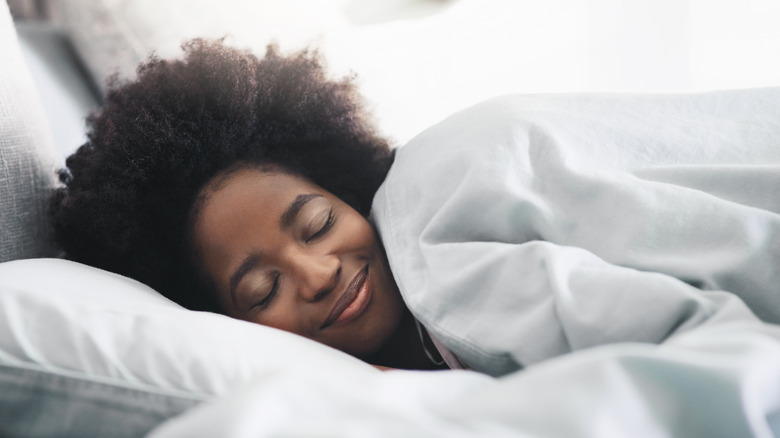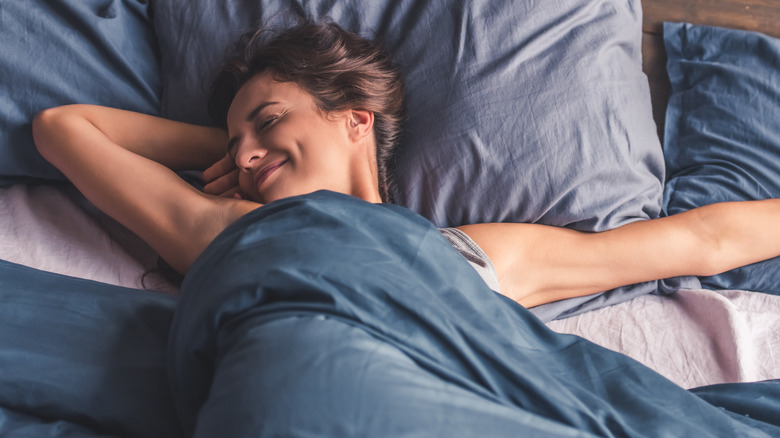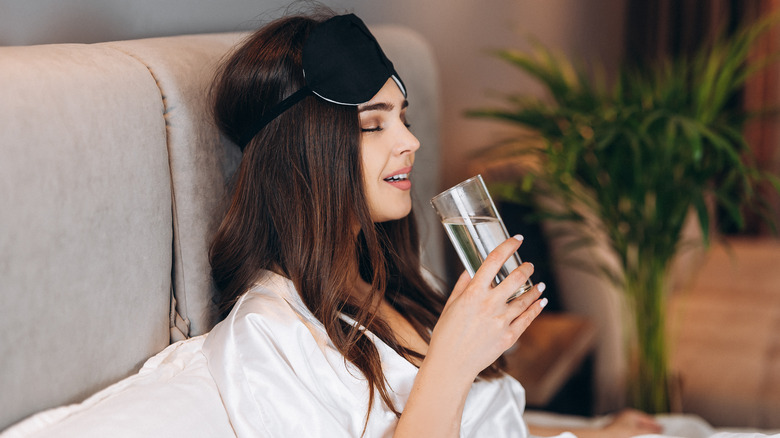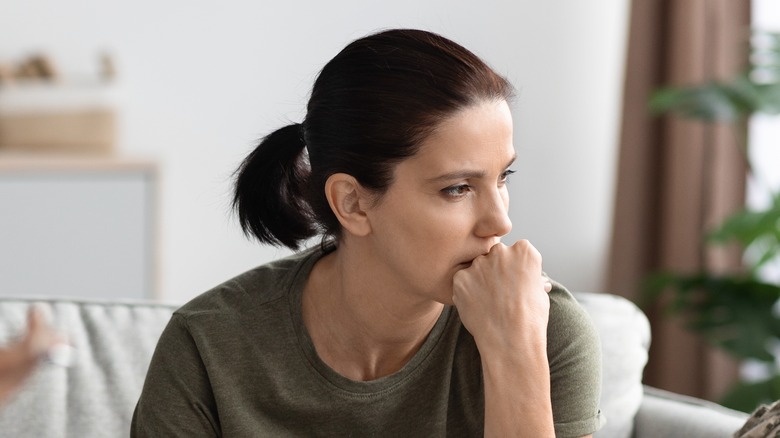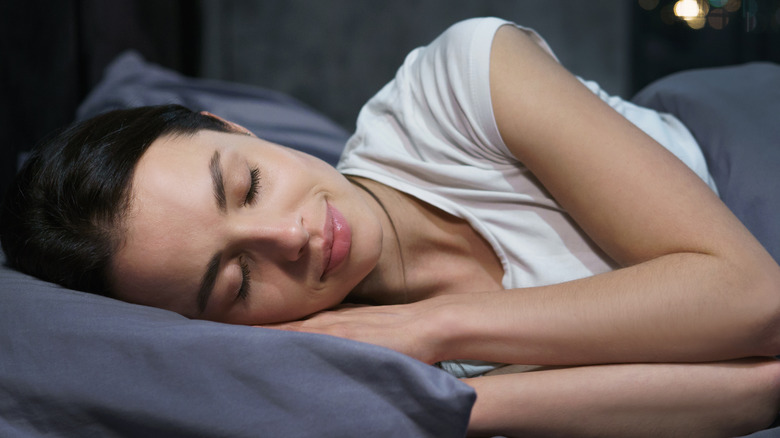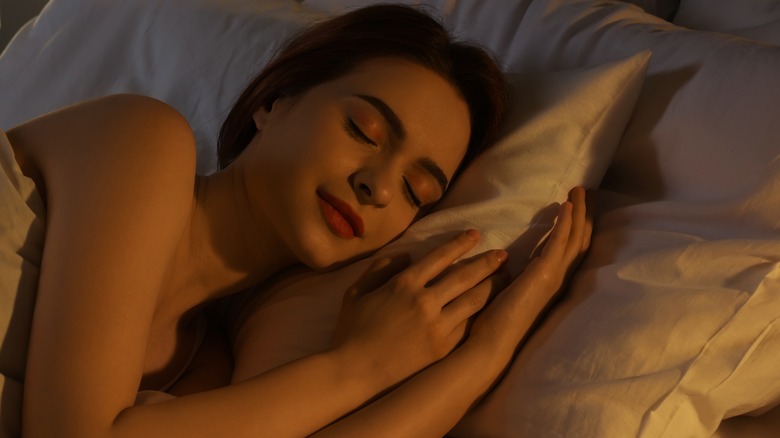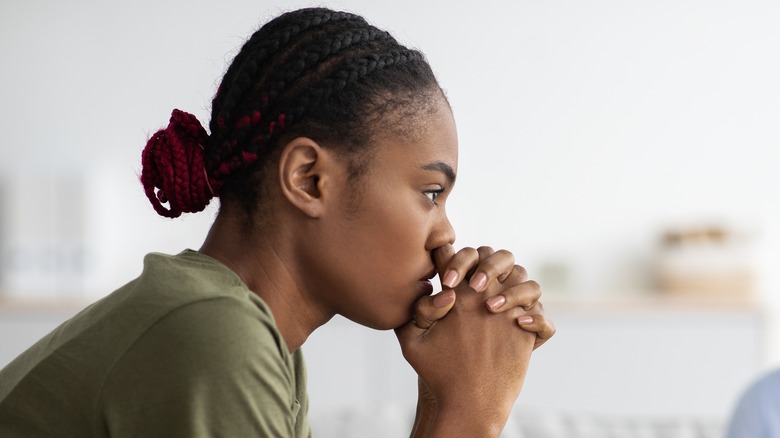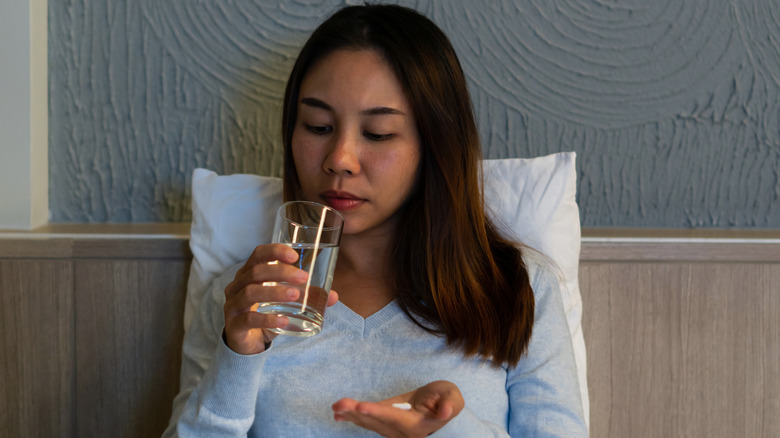Can The Military Sleep Method Really Help You Fall Asleep In Two Minutes?
Everyone benefits from a good night's sleep. Quality rest not only enhances energy levels and boosts mood, but may also protect you from different diseases in the future. Countless studies support the notion that getting enough sleep on a regular basis makes you brighter, more alert, and more upbeat.
Sleep is basically the most restorative step you can take to improve your health. You can usually feel it the next day when you haven't slept enough. All of your basic functions are affected, and you may find it difficult to concentrate and be productive. In the long term, a lack of sleep could lead to an increased risk of developing diabetes, hypertension, heart disease, and obesity, among other serious conditions. Explains Dr. Kenneth Wright, Jr., a sleep researcher at the University of Colorado, to the National Institutes of Health, "There are certain repair processes that occur in the body mostly, or most effectively, during sleep. If you don't get enough sleep, those processes are going to be disturbed."
For those who serve in the military, sleep provides a unique opportunity for downtime and recovery. But research finds that some 60% of them sleep an average of less than six hours per night. It's precisely why the "military sleep method" was developed — and while it's a hit on social media thanks to TikTok, it's something that has worked for years in helping service people get the quality rest that they desperately need.
What is the military sleep method?
The military sleep method was first popularized in a 1981 book called "Relax and Win: Championship Performance" by Olympic sprint coach Lloyd Bud Winter. In simplest terms, it's a form of all-encompassing relaxation that extends, quite literally, from your head to your toes. The technique calls for you to quiet your mind, center yourself, focus on breathing, and relieve stress and tension by gradually relaxing your body. As Dr. Annise Wilson, assistant professor of neurology and sleep medicine at the Baylor College of Medicine, shares: "High levels of stress impair sleep by prolonging how long it takes to fall asleep and fragmenting sleep. Sleep loss triggers our body's stress response system, leading to an elevation in stress hormones, namely cortisol, which further disrupts sleep."
It's a bit like self-hypnosis, according to Dr. William O. Roberts, a professor at the University of Minnesota Medical School Sports Medical Program. He explains to Real Simple that it takes practice to unwind your body from top to bottom, a hallmark of the method that basically calls for you to progressively calm every function and encourage your body to fall into such a state of deep relaxation that you ultimately fall fast asleep. It's the relaxation factor that's critical to an improved night's sleep. Dr. Luis F. Buenaver, a sleep expert at Johns Hopkins University, explains that performing a calming activity is key because it helps "...by reducing the release of the stress hormones cortisol and adrenaline and by slowing your heart rate and breathing."
How to use the method to fall asleep
Members of the military are routinely exposed to unimaginable sights and experiences that change them forever, from combat to schedule changes to injuries. A 2013 study in Current Psychiatry Reports found that all of these could contribute to insomnia. Interestingly, many who have tried the military sleep method have found it to be a highly effective.
Begin by relaxing your face entirely. Keep your eyes closed, take slow, deep breaths, and feel every part relax and essentially go slack. Keep your tongue loose, jaw slightly open, and eyes gently closed. Then, shift your focus south by relaxing your shoulders and working your way down to your forearms and your hands. Focus on the way it feels as you release tension from each body part. Finish by relaxing your legs, starting from your hips and thighs and moving down to your knees, calves, and feet. Through the entire process, continue to take slow, deep breaths.
Finally, it's time to bring your mind to the present. This can be a challenge, as bedtime is often when those unwelcome, intrusive thoughts make their appearance. Visualize a relaxing place, or repeat the mantra "don't think" for 10 seconds. If successful, you should ease into a deep and restful sleep within moments. Note that it may take several minutes the first few times that you try the method. Be patient with the process; practice is key to mastering the finer points of the technique. Over time, you can train yourself to ease into a rested state that prepares your body for sleep.
The importance of mind-clearing
Behavioral sleep medicine specialist Michelle Drerup, PsyD, tells Cleveland Clinic that it's normal to experience those intrusive thoughts when you're trying to sleep. "For most people who find themselves awake while lying in bed, their thoughts are not particularly positive in nature. So, when our thoughts are stressful, our bodies respond in a similar fashion, and our fight-or-flight system is activated." This is why you can only successfully implement the military sleep method if you can manage to clear your mind. Luckily, many of the distractions that make it difficult to sleep, like extreme temperatures, exposure to blue light, and watching television in bed, are easy to control.
What happens when all of those factors are in check and your mind still races? Visualization is a powerful tool that could make a difference. Imagine yourself lying on a field, gazing at the crisp blue sky dotted with fluffy clouds. Imagine yourself lazing on a quiet beach, with nothing but plush sand beneath you and the sound of waves gently lapping against the shoreline. The idea is to center your thoughts, bringing you back to the present so you can finally relax and ultimately sleep. Just as it's important to clear your mind to sleep better, some studies suggest that sleeping itself can "cleanse" your mind in return. Research finds that the brain undergoes a restoration process of sorts while you're asleep, during which toxins that accumulate during the day are essentially "flushed" away from the brain (per the National Institutes of Health).
Why sleep matters in the military
Approximately one in three adults around the globe experiences insomnia symptoms, per Cleveland Clinic. Research published in Clinical Psychology Review also found that up to 54% of military personnel and veterans experience insomnia or symptoms of insomnia, attributed to everything from the rigorous demands of military life to deployment. A lack of sleep can severely impact everything from mood to productivity. Those who return to civilian life may find it challenging to resume a "normal" sleep schedule, something that could affect their moods, health, and ability to transition in a healthy way.
The problem is so prevalent that the United States Army has taken measured steps to help service people sleep more soundly. Sleep is part of the military's "Performance Triad," a series of factors that affect a service member's health, wellbeing, and productivity. According to Lt. Col. Christa Goodwin of the US Army, "Evidence demonstrates that good sleep contributes to better physical and mental health."
Per the Sleep Foundation, the Army advises service members to adopt habits beneficial to sleep, in addition to the military sleep method. It's true that many service people eventually develop the ability to sleep even in noisy environments, but that isn't conducive to the type of quality rest that supports optimal health. For example, they encourage members to follow as consistent a schedule as possible, take short naps during the day, and sleep in a quiet environment that promotes restful sleep. Soldiers are also told to avoid dozing near their vehicles and to check their sleeping habitat for insects.
How well the method works
While there's no hard and fast evidence about its efficacy, anecdotal evidence appears to be the most obvious gauge of the success of the military sleep method. Everyone from self-professed "military brats" to people who've had insomnia for years has expressed satisfaction with the way the technique has transformed their ability to fall asleep — and stay asleep.
Twitter user @Jontafkasi, for example, offered his experience. "Hmm, might be a bit early to get excited but after 40 odd years of insomnia, I got a half decent sleep last night.. I'll be impressed (and a little annoyed) if it was that simple. Military method." Meanwhile, when Justin Agustin shared the technique on a TikTok video, a user commented, "My doctor taught me this technique with slight variations when I had insomnia due to PTSD. Trust me it works 100% once you get it down."
Perhaps the most telling evidence of the military sleep method's success is the result that Lloyd Bud Winter himself shared. When he introduced the method during World War II, he intended to help airmen fall asleep in just two minutes. Although six weeks passed before the service members had practiced enough to master the technique, by that point Winter reported a success rate of 96%. This is despite the fact that the airmen were exposed to a series of factors that might have otherwise kept them more alert and made it difficult to sleep, like loud noises outside and consuming caffeine.
Why the method may be more effective than other strategies
What accounts for the success of the military sleep method? After all, there are countless techniques out there that purportedly help people snooze more soundly. How is it that a decades-old solution has enjoyed a revival and even become something of a social media sensation? In the modern world, where people are exposed to all types of triggers and distractions that could make it difficult to fall asleep, it's not surprising that this particular technique focusing on relaxation has gone viral.
According to Yale Medicine physician Brian Koo, MD, the actual reason is multifold. He explains to VeryWellMind, "Asking a person to focus on their body and distract themselves from thinking about other things is an effective way to promote sleep." He adds that the key factors that are central to the military sleep method are linked to that conclusion.
For example, the very act of deep breathing helps trigger the parasympathetic nervous system, which is responsible for turning off the fight-or-flight response that might otherwise hold you back from falling asleep. There are also elements of the technique that are very similar to progressive muscle relaxation. This, says Matthew Kampert, DO, a sports medicine doctor, to Cleveland Clinic, "is like a body scan that has a mental component and a physiological component. It involves using breathing and visualization to help you acknowledge and release the tension you hold in every area of your body."
Correlating stress and sleep
It's no secret that stress can have a particularly significant effect on your ability to sleep. When your thoughts race, your mind can't slow down — and that leaves little opportunity to focus on clearing your head. It's especially the case for service members, who experience varying degrees of stress throughout their military careers. That begins in the early stages of their journey, when they leave their homes and are exposed to entirely new environments, and extends to periods when they're stationed in new places, involved in combat, or dealing with the loss of a fellow soldier. Whether they're deployed or not, they may experience situations and events that affect their quality of sleep and, consequently, their quality of life.
A study published in the Journal of Clinical Sleep Medicine (JCSM) found that there were several culprits that affect sleep among service members. Stressful life events accounted for 41.8%, with deployments coming in second at 40.6%. The study also found that there weren't remarkable differences in the quality of sleep between members who were deployed or had once been deployed and those who were not.
As Aubrey Strode "Red" Newman, a major general in the United States Army, wrote in his book Follow Me I: The Human Element in Leadership: "In peace and war, the lack of sleep works like termites in a house: below the surface, gnawing quietly and unseen to produce gradual weakening which can lead to sudden and unexpected collapse."
What to do if this method doesn't work
Those who haven't had luck with the military sleep technique might benefit from another tactic, like cultivating a bedtime routine of some kind. A step-by-step approach may be effective, beginning with putting away your devices. There's evidence that exposure to the blue light emitted by items like smartphones, laptops, and tablets can affect your ability to both fall asleep and stay asleep.
Another option is to take a warm bath or shower. Dr. Michael Breus, clinical psychologist and American Academy of Sleep Medicine fellow, explained to Healthline that the goal of taking a warm bath or shower is to cause the body's core temperature to increase to at least 100 degrees Fahrenheit. The temperature then begins to fall naturally, triggering the brain's pineal gland to produce melatonin, the natural hormone that helps you sleep more soundly at night. Others take a melatonin supplement to help them sleep. Research published in Scientifica (Cairo) shows that magnesium may also be helpful. Meanwhile, per a review published in the Journal of the American College of Nutrition, taking L-theanine, an amino acid often taken to relieve stress and anxiety, could be helpful in improving sleep quality. Lavender, valerian root, and passionflower may also be useful.
The bottom line is that sleep is vital to your overall wellbeing and long-term health. If none of the suggested techniques work for you, see a doctor for a referral to a sleep specialist, who can perform diagnostic exams and prescribe treatment to help you get quality sleep.

